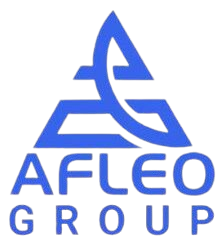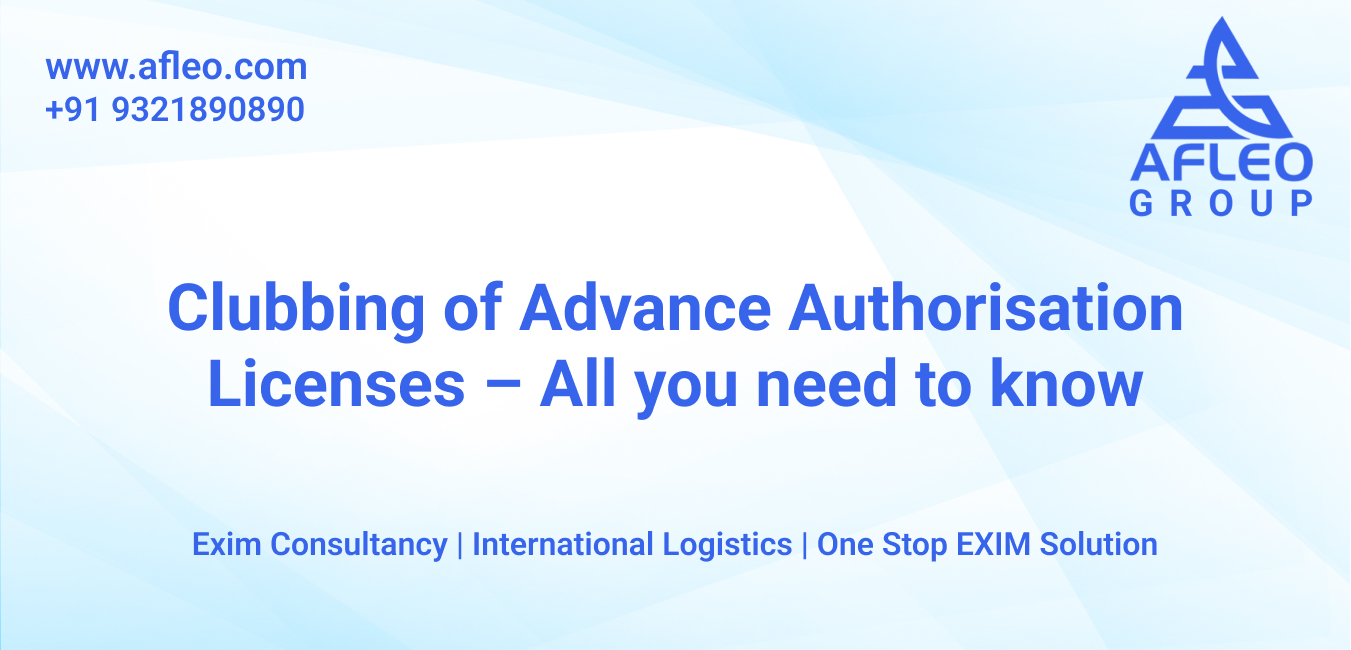The Advance Authorisation Scheme (AAS) or Advance License Scheme is a special program created by the Government of India as part of the Foreign Trade Policy 2015-2020. This scheme offers an exemption from import duties on raw materials and inputs needed for manufacturing export products. In other words, businesses can import these materials at zero customs duty when producing goods for export. The main goal of this scheme is to enhance the competitiveness of Indian products in the international market. By saving on import duties for raw materials, it helps reduce the overall cost of the final export products.
In this blog, we will be discussing a difficult topic, which is “Clubbing of Advance Authorisation Licenses.” Many people have doubts regarding Clubbing of Advance Authorisation. They may wonder what it is, when it can be done, the maximum number of licenses that can be clubbed, the benefits of clubbing, and the procedure involved. In this blog, we will clarify all these concepts.
What is Clubbing of Advance Authorisation Licenses?
As you all know, the Advance Authorisation Licenses need to be closed once they have served their purpose. In usual cases, you apply for End of Duty Credit (EODC) or Redemption separately for each individual authorization.
However, when we combine the redemption application of two or more licenses into a single file, it is referred to as “Clubbing.”
When to choose Clubbing of Advance Licenses?
Consider that you have exported more under one Advance License and less under another, or in other words, there is a balance of imports left in one license and excess imports in the other.
In such cases, for the license with lesser exports, you will be required to pay Duty + Interest.
To avoid paying extra charges like Duty + Interest on the excess imports, you can choose to combine your licenses, which is called “clubbing.” By doing this, you can redeem both licenses without having to pay any extra fees like Duty + Interest.
The same logic can be applied to more than two licenses, and you can club them together for closure. There is no maximum limit specified in the policy for the number of licenses that can be clubbed.
However, it’s important to note that Clubbing is allowed only as per para 4.36 of HBP 2023, where around 15 conditions are specified. In the next section, we will explain these conditions, which are very crucial to understand.
If you’re a business owner or entrepreneur looking to expand your imports and exports, understanding the concept of clubbing advance authorization licenses is crucial. In this video, we break down everything you need to know about this complex topic, including its advantages and conditions.
Important Conditions for Clubbing as per para 4.36 of HBP 2023
As discussed earlier, there are around 15 conditions in para 4.36 of HBP 2023 for Clubbing, and now we will focus on 5 to 6 important conditions:
- First, Clubbing is not allowed for any Authorizations issued before 31st March 2009.
- All the licenses that you want to club must be issued by the same Regional Office of DGFT.
- Clubbing can only be done for the purpose of redemption/regularization, meaning once licenses are clubbed, you cannot use them for further imports or exports.
- A very important condition is that you can only club licenses that were issued within 18 months from the date of the earliest license. For example, if your earliest Advance License was issued on 1st June 2019, then you can only club licenses that were issued up to 1st December 2020. Any license issued on or after 1st January 2021 cannot be clubbed as it exceeds the 18-month limit.
- Additionally, only imports made within 30 months from the date of issue of the earliest authorization will be considered for clubbing. Imports made beyond 30 months will require you to pay Duty + Interest.
- You cannot club any license that already has a redemption letter or EODC (End of Duty Credit) issued.
For a more comprehensive understanding, please review the entire para 4.36 of HBP.
Policy Relaxation Committee (PRC) cases under Clubbing of Advance Authorisation
If you are unable to fulfill any of the 15 conditions specified for Clubbing, the DGFT (Directorate General of Foreign Trade) regional office will not allow you to proceed with the Clubbing process.
In such situations, you will need to approach the Policy Relaxation Committee (PRC) at the DGFT Delhi Headquarters.
For instance, if you wish to club licenses that were not issued within 18 months of each other, you can seek special permission from the PRC Committee to proceed with the Clubbing process.
“Explore our webpage on Policy Relaxation – An Overview to understand how importers and exporters in India can benefit from exemptions and relaxations under the foreign trade policy. Learn about the role of the Policy Relaxation Committee (PRC) at DGFT Delhi.
https://afleo.com/policy-relaxation-committee-prc-dgft-delhi/
Who are we and Why choose us?
We at Afleo Group, are a team of DGFT & Customs Experts having a rich experience of 10+ Years in Exim Consultancy & International Logistics [Freight Forwarding] and also deal in Buy/Sell RODTEP/ROSCTL/DFIA License With our vast knowledge and experience in this field we can represent your case for all the activities pertaining to the Tariff Rate Quota and get it in a hassle-free manner. We are well-equipped to handle the logistics of global trade with efficiency and expertise. Let us handle the logistics while you focus on growing your business. Contact us today to learn more about how we can help you streamline your supply chain and increase your bottom line. We are dedicated to providing efficient and cost-effective logistics services to help our clients.
So do get in touch with us for any of your requirements and our team will be happy to help you.
We request you to share this information with your other Industry friends, Trade associations, as this information might help them as well.

